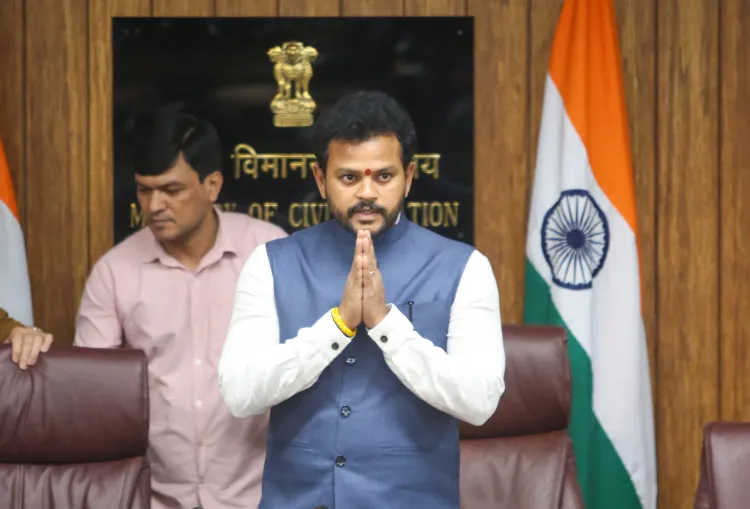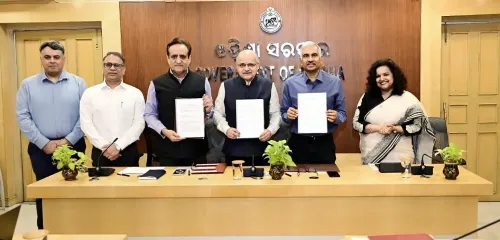What Should We Conclude from the AAIB Report? Civil Aviation Minister Weighs In

Synopsis
Key Takeaways
- AAIB report is based on preliminary findings.
- Minister stresses the importance of waiting for the final report.
- Highlighting the importance of pilots in civil aviation.
- The capability to analyze accidents has improved in India.
- Preliminary findings should not lead to premature conclusions.
New Delhi, July 12 (NationPress) Civil Aviation Minister Ram Mohan Naidu stated on Saturday that the Aircraft Accident Investigation Bureau (AAIB)'s report regarding the Air India plane crash in Ahmedabad is derived from preliminary findings, and it is essential to refrain from jumping to conclusions until the final report is released.
While addressing the media, he emphasized that we should not rush to any conclusions at this time.
“I have great faith in the exceptional workforce of pilots and crew we have globally. I commend the efforts of our pilots and crew, who are the backbone of civil aviation,” the Union Minister remarked.
“They are a vital resource for civil aviation. We prioritize their welfare and well-being. Therefore, it is important to wait for the final report rather than jumping to conclusions at this moment,” he added.
According to Naidu, there are technical aspects to consider.
“Commenting on the report at this stage would be premature. Although the preliminary findings have been released, we need to await substantial information,” he stated.
The Minister of State for Civil Aviation, Murlidhar Mohol, also indicated that the AAIB report is still preliminary, and “we cannot make any definitive statements at this juncture.”
In an interview with IANS regarding the AAIB investigation into the tragic crash of Air India flight AI 171 — a Boeing 787-8 Dreamliner that tragically went down shortly after departure from Ahmedabad on June 12, the minister emphasized that this is merely a preliminary report, and “further investigations are ongoing.”
“Nevertheless, the Aircraft Accident Investigation Bureau (AAIB) has performed commendably. Previously, any helicopter accident required sending the black box abroad for analysis. Now, we possess the capability within our own country,” he noted.
Mohol reiterated that since this is a preliminary report, no conclusive statements can be made at this time.
The AAIB's preliminary report indicated that both fuel control switches supplying fuel to the engines of Air India flight 171 were switched off in rapid succession, resulting in the shutdown of both engines. One pilot can be heard on the cockpit voice recorder questioning the other about why he cut off the fuel, to which the other pilot replied that “he did not,” according to the report.









